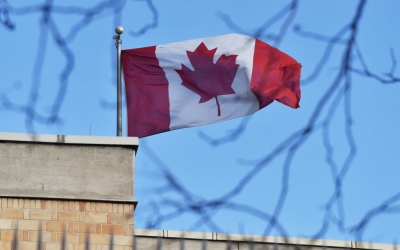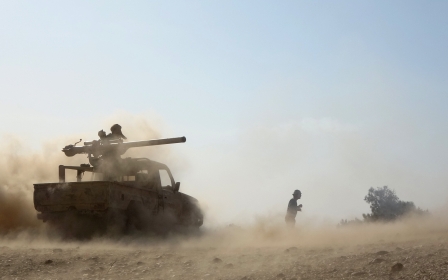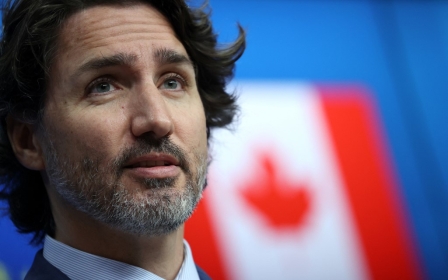Canada's arms sales to Saudi Arabia jumped in 2021, government report says

Canada's military exports to Saudi Arabia increased in 2021, despite an unresolved diplomatic dispute between the two countries.
In a report released on Tuesday, Global Affairs Canada - the government department which oversees the country's diplomatic affairs - said Ottawa exported more than C$1.7bn ($1.34bn) worth of weaponry to Saudi Arabia in 2021, an increase from C$1.3bn ($1.03bn) in 2020.
The report ranks the kingdom as Canada's top export destination for such goods after the United States, making up 64 percent of the total value of non-US military exports.
The report marks the 10th year in which Saudi Arabia has been Canada's second-largest purchaser of military equipment.
According to the report, arms exports to the kingdom continued even after a spat between the two countries erupted in 2018.
That year, the Department of Global Affairs and then-foreign minister Chrystia Freeland used Twitter to call for the immediate release of several imprisoned political activists.
A diplomatic row ensued, with top Saudi officials lambasting Ottawa for meddling in the country's "internal affairs".
Riyadh suspended trade with Canada, expelled the Canadian ambassador from the kingdom and recalled thousands of Saudi students studying medicine in Canada, a move that threw both countries' healthcare systems into disarray.
In the same year, in light of rising civilian casualties in the Saudi-led coalition's war in Yemen and the murder of Middle East Eye columnist Jamal Khashoggi, the government of Prime Minister Justin Trudeau put a moratorium on new export permits to the kingdom.
But in 2019, Canada sold "a record amount of military hardware" to Riyadh, worth approximately $2.2bn. This included light armoured vehicles (LAVs), artillery systems, and heavy machine guns.
Canada 'ignoring international law'
The moratorium on weapon sales to the kingdom concluded in April 2020, with Ottawa saying it had made improvements to the C$15bn ($12bn) light armoured vehicle contract and pledging to evaluate each and every future military export permit.
The move followed a review by the Canadian government of weapons sales to the kingdom, which concluded there was "no substantial risk" such transfers of military goods were "used to commit or facilitate violations of international human rights law, international humanitarian law, or gender-based violence".
Global Affairs Canada told MEE last year that it "has one of the strongest export controls systems in the world, and respect for human rights is enshrined in our export controls legislation".
Almost all of Canada's 2021 arms exports to Saudi Arabia are LAVs.
A report by rights groups Amnesty International and Project Ploughshares said the Canadian government's review misinterpreted, or ignored, key pillars of the 2019 Arms Trade Treaty, an international agreement signed by Canada regulating the international trade in conventional arms.
"Contrary to what the federal government has said, Canada continues to ignore its international obligations to the Arms Trade Treaty," Cesar Jaramillo, executive director of Project Ploughshares, said at the time.
Two back-to-back reports in 2020 and 2021 by a group of UN experts also named Canada as one of the countries helping to fuel the war in Yemen through its continued arms sales to Saudi Arabia.
Saudi Arabia and its regional allies, mainly the United Arab Emirates, entered the Yemeni government's war against the Houthi rebels in 2015, and began a wide-ranging aerial bombing campaign.
The UN calls the situation in Yemen the world's worst humanitarian crisis, as the war has killed more than 230,000 people, causing outbreaks of disease and pushing the impoverished country to the brink of famine.
In March, the warring parties in the conflict announced a ceasefire that is continuing to last, paving the way to what experts say could be an end to the nearly decade-long war.
The Middle East in general was the most important export market for Canadian arms in 2021, with Algeria being the eighth-biggest destination for military goods at C$34m ($26.9m), and Canadian arms exports to Israel increasing to more than C$26m ($20.5m) in 2021, from about C$19m ($15m) in 2020.
Middle East Eye delivers independent and unrivalled coverage and analysis of the Middle East, North Africa and beyond. To learn more about republishing this content and the associated fees, please fill out this form. More about MEE can be found here.





